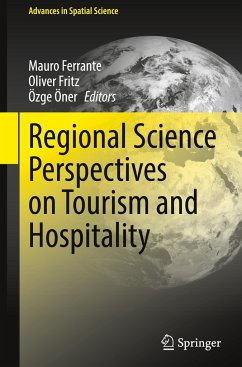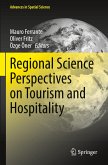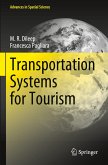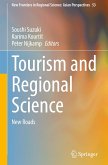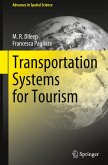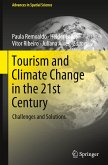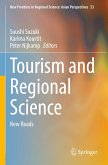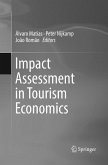This book approaches the tourism and hospitality industry from a regional science perspective. By analyzing the spatial context of tourist travels, the hospitality sector, and the regional impacts of tourist activities, it demonstrates the value of the regional science paradigm for understanding the dynamics and effects of tourism and hospitality-related phenomena. Written by leading regional science scholars from various countries as well as professionals from organizations such as OECD and AirBnB, the contributions address topics such as migration, new types of accommodation, segmentation of tourism demand, and the potential use of tracking technologies in tourism research.
The content is divided into five parts, the first of which analyzes spatial effects on the development of firms in the tourism industry, while the second approaches temporal and spatial variability in tourism through analytical regional science tools. The broader economic and social impacts of tourism are addressed in part three. Part four assesses specific tourism segments and tourist behaviors, while part five discusses environmental aspects and tourism destination policies. The book will appeal to scholars of regional and spatial science and tourism, as well as tourism specialists and policymakers interested in developing science and evidence-based tourism policies.
The content is divided into five parts, the first of which analyzes spatial effects on the development of firms in the tourism industry, while the second approaches temporal and spatial variability in tourism through analytical regional science tools. The broader economic and social impacts of tourism are addressed in part three. Part four assesses specific tourism segments and tourist behaviors, while part five discusses environmental aspects and tourism destination policies. The book will appeal to scholars of regional and spatial science and tourism, as well as tourism specialists and policymakers interested in developing science and evidence-based tourism policies.

